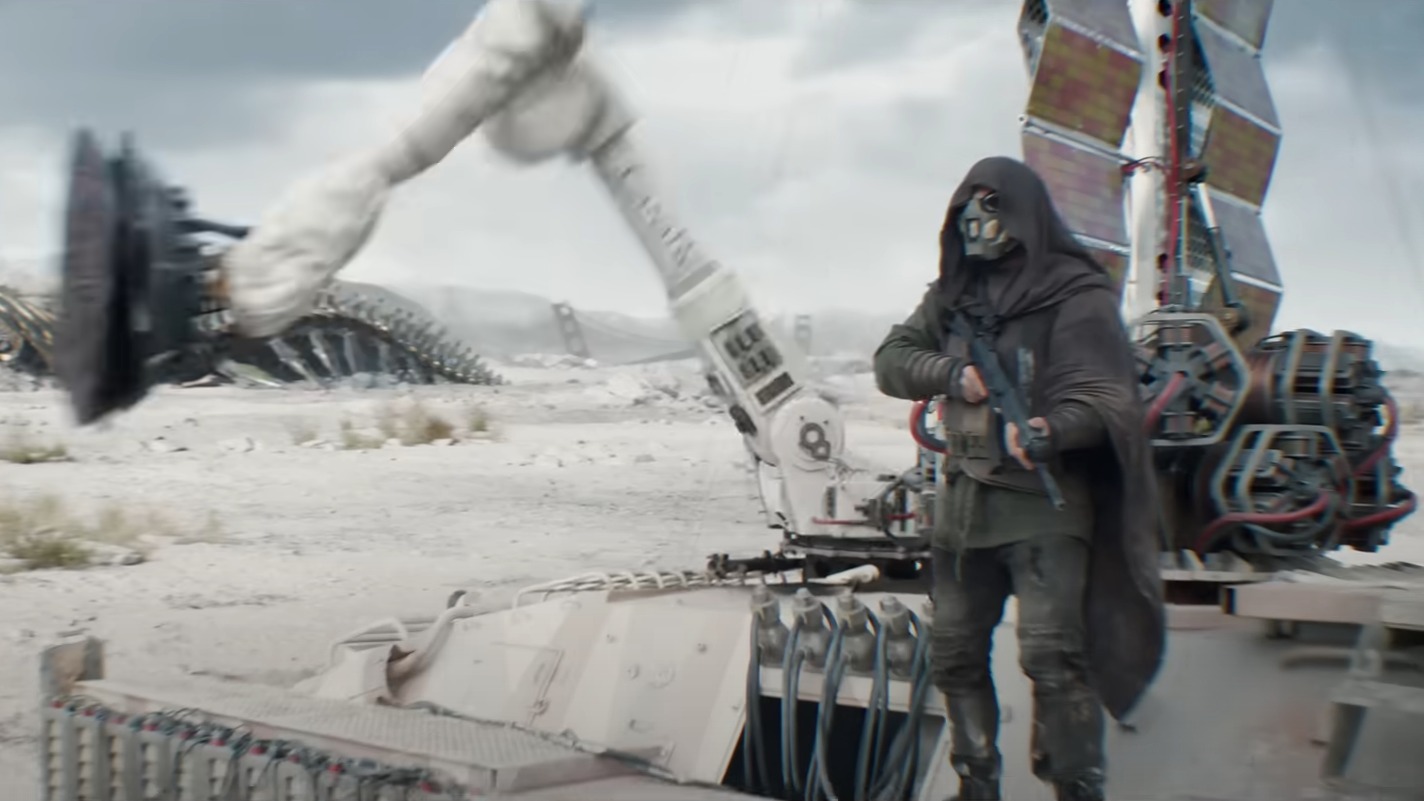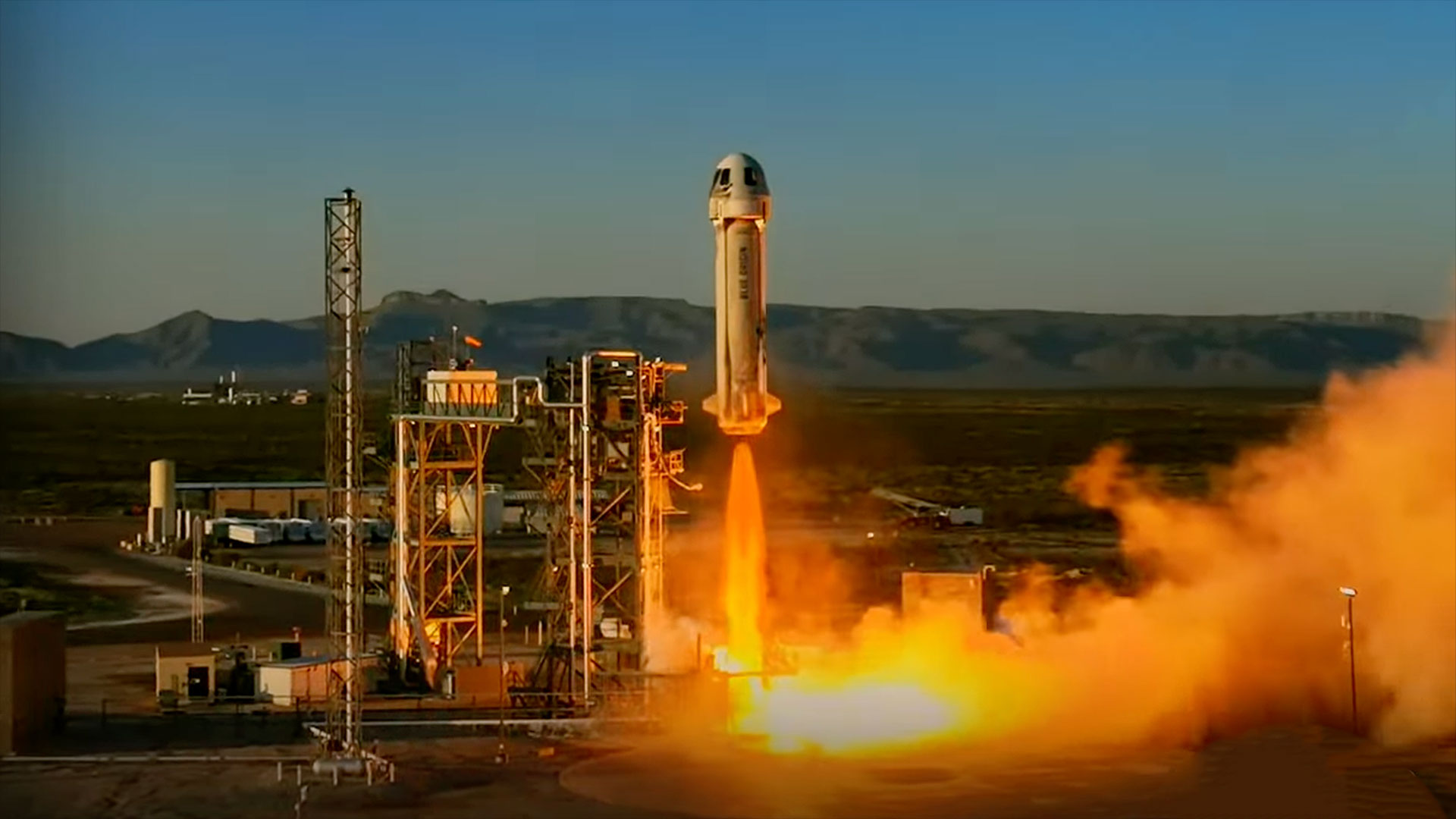'Deadpool & Wolverine' has a sneaky Canadarm robot arm cameo at the end of time — but blink and you'll miss it

Canada's famous robotic space arm just made a cameo on the silver screen.
The iconic Canadarm briefly appears in the new film "Deadpool & Wolverine" — but not in space as you might expect. Instead, the space shuttle hardware shows up in a scene on the ground next to an unnamed villain, and bearing a big magnet on one of its ends. We won't talk about why the arm is there because, you know, spoilers. But you can check the space arm in action quickly in the trailer.
The maple-leaf-festooned Easter egg of Canada's space program isn't the film's only connection to the country known for poutine and hockey: Ryan Reynolds, who co-stars as Deadpool, hails from Vancouver, British Columbia.
Canadarm is the centerpiece of Canada's contributions to human spaceflight. The arm first flew on the second flight of the space shuttle, STS-2, in 1981. Its original role was to deploy and capture satellites in space, and to help with spacewalks.
Related: X-Men movies in order: Chronological & release
Today, there are three robot generations: the retired Canadarm, Canadarm2 on the International Space Station (ISS), and Canadarm3, which is expected to support NASA's Gateway station in orbit around the moon for Artemis program missions.
Most surviving Canadarms are on the ground, but one is still at the ISS as a modified "Enhanced ISS Boom Assembly" to extend the reach of Canadarm2 when necessary. (It doesn't appear to have been used in years, but backups are always great.)
Breaking space news, the latest updates on rocket launches, skywatching events and more!
Seats on NASA missions for Canadian Space Agency (CSA) astronauts come courtesy of the Canadarm series' robotic powers, as the robotics are provided in exchange for seats. Over the years, the Canadarms have done noteworthy things such as scanning the space shuttle's belly for broken tiles, helping to build the ISS, participating in a dramatic spacewalk to repair a torn solar wing on the ISS, and picking up the Hubble Space Telescope, among other milestones.
Canadian robotic arms come from generations of telescoping tube technology seen in examples such as satellite extendable antennas and the Apollo program's lunar lander's legs, according to "Canadarm and Collaboration" (Elizabeth Howell, ECW Press, 2020.)
The space arm was originally developed by Spar Aerospace, with support from Canada's National Research Council (the government entity responsible for astronaut training before the CSA was formed in 1989). Today, the Canadarm series is funded by CSA and managed by the company MDA Space (formerly MDA), which brought the space robotics division of Spar in 1999, according to the National Post.

Elizabeth Howell (she/her), Ph.D., was a staff writer in the spaceflight channel between 2022 and 2024 specializing in Canadian space news. She was contributing writer for Space.com for 10 years from 2012 to 2024. Elizabeth's reporting includes multiple exclusives with the White House, leading world coverage about a lost-and-found space tomato on the International Space Station, witnessing five human spaceflight launches on two continents, flying parabolic, working inside a spacesuit, and participating in a simulated Mars mission. Her latest book, "Why Am I Taller?" (ECW Press, 2022) is co-written with astronaut Dave Williams.
